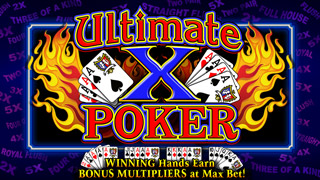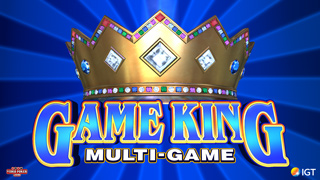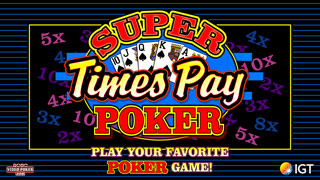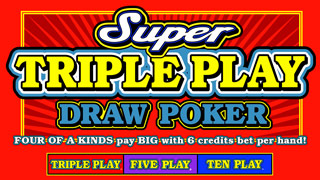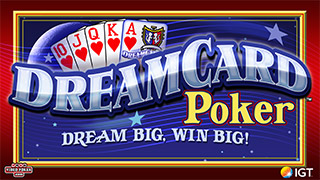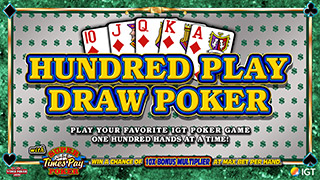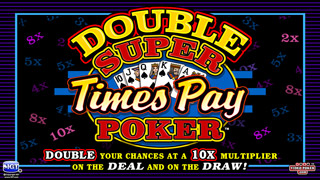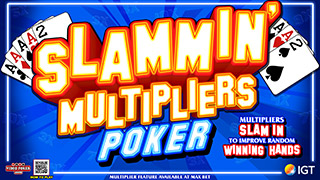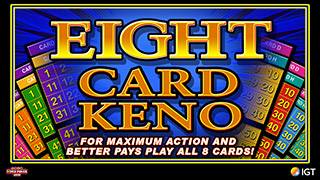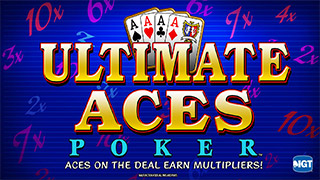Quantifying Good & Bad Decisions
-
Frank Kneeland
- VP Veteran
- Posts: 762
- Joined: Wed Feb 02, 2011 6:59 pm
Quantifying Good & Bad Decisions
Quantifying
Good & Bad Decisions
(as
they pertain to video poker)
There's been a lot of talk on the forum
in the last week about good outcomes not validating or invalidating
bad decisions and visa versa. What we have not done is to quantify
exactly how bad a bad decision is, or how good your chances are of
success if you do everything right. It's about time we rectify that.
WARNING! MATH KNOWLEDGE REQUIRED
Hypothetical situation:
You take two
groups of one hundred people and bankroll them to play 1,000,000
hands of dollar video poker. Group A will play a game with 99% return
and a standard deviation of + or - 1% at 1 million hands. Group B will play
a game with 101% return and a standard deviation of + or - 1% at 1 million
hands. We can say that:
Group A is
making a BAD decision
Group B is
making a GOOD decision
The question is
how good and how bad??? QUESTION 1: Of the 100 people playing the inferior game,
how many would still be expected to win because of chance alone? QUESTION 2: And
of the people playing the positive expectancy game, how many out of
the 100 would still be expected to lose due to chance alone?
I'm asking shadow,
and new2VP to abstain from this question, because for them it would
be too easy.
One should be able
to answer this question with only basic high-school math. In fact if
you received an education in America all the knowledge required to
solve it was required for graduation.
It's fine to say
one game is bad and the other is better, now let's quantify how much
better and how much worse...???
I'll post the
answers in a few days.
~FK
-
edog743
- Video Poker Master
- Posts: 1139
- Joined: Mon Nov 29, 2010 4:38 pm
I will take a stab at it with the deviation of 1% the results should turn out to be pretty much a wash. both groups should come out about even.
-
Frank Kneeland
- VP Veteran
- Posts: 762
- Joined: Wed Feb 02, 2011 6:59 pm
I will take a stab at it with the deviation of 1% the results should turn out to be pretty much a wash. both groups should come out about even.Keep in mind a standard deviation of 1% can be both positive or negative. I'll change it to read + of - 1%.
-
Frank Kneeland
- VP Veteran
- Posts: 762
- Joined: Wed Feb 02, 2011 6:59 pm
Once we get these opening questions out of the way, I have some really interesting thoughts to share in this thread. Stuff I've never talked about before. I hope people participate.
-
Frank Kneeland
- VP Veteran
- Posts: 762
- Joined: Wed Feb 02, 2011 6:59 pm
So I guess we're stalled at the high-school math questions then?~FK
-
feline57
- Senior Member
- Posts: 114
- Joined: Tue Oct 24, 2006 3:36 pm
I am getting hung up on the wording used. The math would give you the "expected" outcome.
However, the word "chance" can't be validated or invalidated by the expected (math) result.
Each individual hand of video poker has a "chance" to be all garbage and every combination all the way to a royal flush.
I think of it as the difference between possibility(anything can occur) and probability(more likely or unlikely to occur)
So to me the expected outcome does not equal the chance outcome.
I hope I made at least some sense here.
However, the word "chance" can't be validated or invalidated by the expected (math) result.
Each individual hand of video poker has a "chance" to be all garbage and every combination all the way to a royal flush.
I think of it as the difference between possibility(anything can occur) and probability(more likely or unlikely to occur)
So to me the expected outcome does not equal the chance outcome.
I hope I made at least some sense here.
-
Frank Kneeland
- VP Veteran
- Posts: 762
- Joined: Wed Feb 02, 2011 6:59 pm
I am getting hung up on the wording used. The math would give you the "expected" outcome.
However, the word "chance" can't be validated or invalidated by the expected (math) result.
Each individual hand of video poker has a "chance" to be all garbage and every combination all the way to a royal flush.
I think of it as the difference between possibility(anything can occur) and probability(more likely or unlikely to occur)
So to me the expected outcome does not equal the chance outcome.
I hope I made at least some sense here.Here the word "Chance" is being used to denote the normal variation in random events that would be expected and unsurprising to those with a firm grasp of how varied random results really are. If you like you could substitute the word, "luck", but I'd prefer you didn't because it means different things to different people. I try never to use the word "luck" for that reason. To some it implies magical properties and belies the perfectly normal and expected concepts it was originally created to convey.~FK
-
mrgrandpiano
- Forum Rookie
- Posts: 10
- Joined: Fri Oct 21, 2011 7:07 pm
Assuming that 1,000,000 hands is enough to use the normal distribution, I learned that 68% of all results fall within 1 standard deviation of the average. Therefore: Group A - 68% would be between 98% and 100%Group B - 68% would be between 100% and 102% Assuming the normal distribution again, 1/2 of the remaining 32% (100%-68%) = 16% would be above 1 standard deviation and the other 1/2 below 1 standard deviation. Therefore: Group A - 16% above 100% --> 16% win, 84% loseGroup B - 16% below 100% --> 84% win, 16% lose Five times as many group B players should be ahead.
-
Frank Kneeland
- VP Veteran
- Posts: 762
- Joined: Wed Feb 02, 2011 6:59 pm
Assuming that 1,000,000 hands is enough to use the normal distribution, I learned that 68% of all results fall within 1 standard deviation of the average. Therefore: Group A - 68% would be between 98% and 100%Group B - 68% would be between 100% and 102% Assuming the normal distribution again, 1/2 of the remaining 32% (100%-68%) = 16% would be above 1 standard deviation and the other 1/2 below 1 standard deviation. Therefore: Group A - 16% above 100% --> 16% win, 84% loseGroup B - 16% below 100% --> 84% win, 16% lose Five times as many group B players should be ahead. Perfect!!! Spot On...Now here's the rest of the mental exercise.-----------------------------------------------------------------------------There was no need
to over complicate the answer, since we only specified win/lose as
the criteria. The percentage of people that will fall within + or - 1
standard deviation of mean is 68.2% of the remainder, half will do
worse and half will do better. Therefore 100% - 68.2% / 2 = 15.9%. As
I said it was easy math. Now what does it mean and what are the
in-obvious implications.
That is to say:
Group A:
Out of the 100 people Playing 1 million hands of 99% return machines,
about 16 of them would be ahead at the end of a full year of
play...even though they were playing with a negative expectancy.
Group B:
Out of the 100 people Playing 1 million hands of 101% return
machines, about 16 of them would be stuck at the end of a full year
of play...even though they were playing with a positive expectancy.
Obviously, Group A
would have 84 losers and Group B would have 84 winners. If winning
was your goal your chance of winning would increase from 16% in group A
to 84% in group B, but being in either group would not a be a guarantee
of winning, since there are no guarantees in events involving a
random element.
Now imagine this:
Before running the
experiment you told each group what their expectancy was, and whether
or not they were supposed to win or lose. You even told them how much
they were supposed to win or lose, which was $50,000. During the one
year experiment none of the subjects were allowed to discuss their
results or talk about the experiment publicly (for instance on-line
forums).
Your job is to
reason out which folks in each group would be the most vocal at the
end of the experiment and what they might have to say about things.
Group A The 84%
losers: They were told they should lose playing these games, and
they lost. No surprises.1. What do you think would be on their mind, and what if
anything would they be saying if they posted on on-line forums. 2. And
how likely do you think it would be that they would be talking on
on-line forums.
Group A The 16%
Winners: They were told they should lose, but they won! Same
questions as above.
Group B The 84%
Winners: They were told they should win and they won. Same
questions as above with careful attention to whether you'd think they
would even bother posting on forums. Keep in mind everything went
exactly as planned for these folk and they likely don't feel they
have anything to learn or share on a forum.
Group B The 16%
Losers: They were told they should win, but they lost instead!!!
Same questions as above, with extra attention to what they would
likely now think and be saying about positive expectation gambling.
When answering
these questions consider this seemingly unrelated question: When was
the last time you got up in the morning, brushed your teeth, drove to
work, had an uneventful day, drove home, had dinner, watched a TV
show, and went to sleep...and then felt the need to talk to everyone
about your completely unremarkable and normal day???.???~FK
-
Frank Kneeland
- VP Veteran
- Posts: 762
- Joined: Wed Feb 02, 2011 6:59 pm
No takers for the second round of questions?



